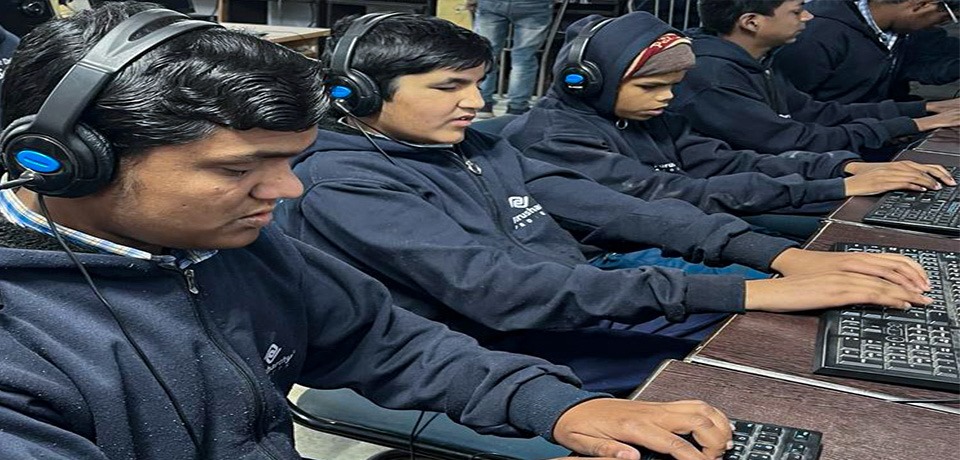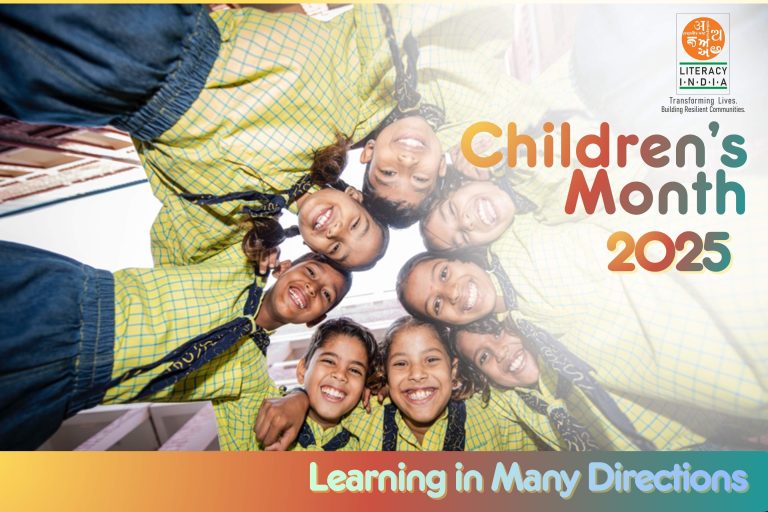Over the last 3 decades, Literacy India has remained committed to transforming the lives of underserved children and underprivileged women through quality education and skill training. This journey towards self-reliance and empowerment is built upon the robust pillars of Education, Empowerment, Employability, and Environment. Their innovative approach extends to nurturing a culture of environmental responsibility among those who have been educated, employed, and empowered. The educational methods are dynamic and interactive, encompassing workshops, theatre, dance, and group learning, effectively steering clear of traditional rote learning techniques.
For several years now, Literacy India has made strides in championing social inclusion and financial independence for the transgender community. Offering an entire spectrum of services such as placements, skilling, communication training, profile building, etiquette, and grooming, all at no cost, Literacy India stands as a pillar of support for the transgender community.
Literacy India believes that inclusivity isn’t just a virtue; it’s the cornerstone of a thriving society. Embracing diversity, irrespective of abilities or backgrounds, fuels innovation, fosters understanding, and paves the way for a harmonious world where every voice is heard, and every individual is valued. This commitment to inclusivity is further evident in its involvement with the visually impaired youth in their Call Centre Lab, a groundbreaking initiative that exemplifies the shift from social exclusion to an inclusive framework.
Despite Persons with Disabilities (PwDs) making up 7-8% of India’s population, their representation in the workforce is less than 1%, a gap Literacy India is determined to bridge. By debunking myths about the employability of PwDs and showcasing the benefits of a diverse workforce, Literacy India aims to encourage companies to embrace inclusivity, resulting in reduced staff turnover, higher customer satisfaction, and a more sensitized organizational culture. This holistic approach requires collaboration from companies, government, like minded non-profits, and individuals, involving workplace modifications, training process adjustments, and societal sensitization.
Introduction:
Literacy India Call Centre Lab is an innovative initiative designed to address the significant challenges faced by visually impaired youth in securing employment in the customer service sector. Recognizing the lack of accessible workplaces and the need for inclusive employment opportunities, Literacy India Call Centre Lab offers a specialized solution to bridge this gap.
The Problem:
Visually impaired individuals often encounter significant barriers in the job market, especially in fields requiring extensive use of computer systems, such as call Centres. This lack of accessibility in workplace technology has contributed to a high unemployment rate among visually impaired youth, leaving a vast potential workforce untapped.
The Magnitude of the Problem:
Millions of visually impaired individuals struggle to find employment due to these accessibility challenges. In many regions, the visually impaired youth unemployment rate is significantly higher than the national average, underscoring the urgency of addressing this issue.
Our Solution:
Literacy India has adopted NVDA (Non-Visual Desktop Access), a free, open-source screen reader, to empower the visually impaired. This tool aligns with their mission to provide equal technology access, crucial in regions with limited resources.
Easy to install and user-friendly, NVDA offers a seamless experience, essential for those new to screen readers. Its portability allows use on multiple computers, ideal for educational and workplace environments. Supporting various languages, NVDA caters to a diverse user base, including minority language speakers.
As an open-source project, NVDA benefits from ongoing improvements by a community-driven development process. This aligns with Literacy India’s commitment to community involvement and empowerment.
The solution’s impact is significant, enabling education, employment, and independence in daily tasks. It’s a key tool in Literacy India’s efforts to enhance access to technology, driving change towards a more inclusive and equitable digital world.
Further, Literacy India Call Centre Lab has developed a comprehensive call Centre solution tailored to the needs of visually impaired individuals. Key aspects of our solution include:
– Voice modulation training typically includes exercises that help in understanding the nuances of voice projection, clarity, and enunciation. Participants learn how to emphasize key points and how to adjust their speaking style according to the context of the conversation or the customer’s mood and needs.
For the visually impaired, training also includes developing heightened listening skills to compensate for the lack of visual cues. This helps them better understand a caller’s tone, mood, and intent, allowing for more effective and empathetic responses.
Additionally, stress management and breathing techniques are a part of the training. These techniques help maintain vocal health, a critical aspect for professionals who rely heavily on their voice.
Voice modulation training for visually impaired individuals in call centres is not just about developing effective communication skills; it’s also about boosting confidence. Being able to communicate effectively is empowering and plays a significant role in the successful integration of visually impaired individuals into the call centre workforce.
– User-Friendly Interface with complete keyboard navigation with shortcut keys, simplifying operation and reducing complexity.
– Cloud-Based Accessibility for remote access capabilities, allowing visually impaired youth to work from home or any location with internet access.
– Quality Management Tools like screen and call recording for effective supervision and support of remote agents.
Implementation and Impact:
Currently implemented in Jaipur, Literacy India Call Centre Lab aims to expand its reach, targeting to impact thousands of visually impaired youth. By providing them with the necessary tools and training, we are enabling them to enter the workforce and become self-sufficient.
Sustainability of the Model:
The sustainability of the Literacy India Call Centre Lab model lies in its ability to fulfil the dual objectives of corporate social responsibility and business efficiency. Organisations partnering with us benefit from tapping into a skilled, yet previously overlooked, workforce, while contributing positively to social inclusion. The revenue generated through our services is reinvested in training more visually impaired individuals, ensuring the longevity and growth of the initiative.
Literacy India Call Centre Lab is more than just a workplace; it’s a movement towards creating inclusive employment opportunities for visually impaired youth. By turning challenges into opportunities, we are not only empowering individuals but also enriching the customer service industry with untapped talent.
“Presently, the BPO industry stands as a significant employer, and we foresee a substantial increase in employment numbers by the end of this decade,” remarks Capt. Indraani Singh from Literacy India. “This growth presents immense opportunities, especially for the visually impaired youth of India, not only offering them employment prospects but also a platform for skill enhancement and valuable work experience. Importantly, their active participation and inclusion in the workforce is vital for their personal growth and for contributing to the country’s economic development. It plays a crucial role in fostering an inclusive work environment, underscoring our conscious aim of promoting inclusiveness in society.”




